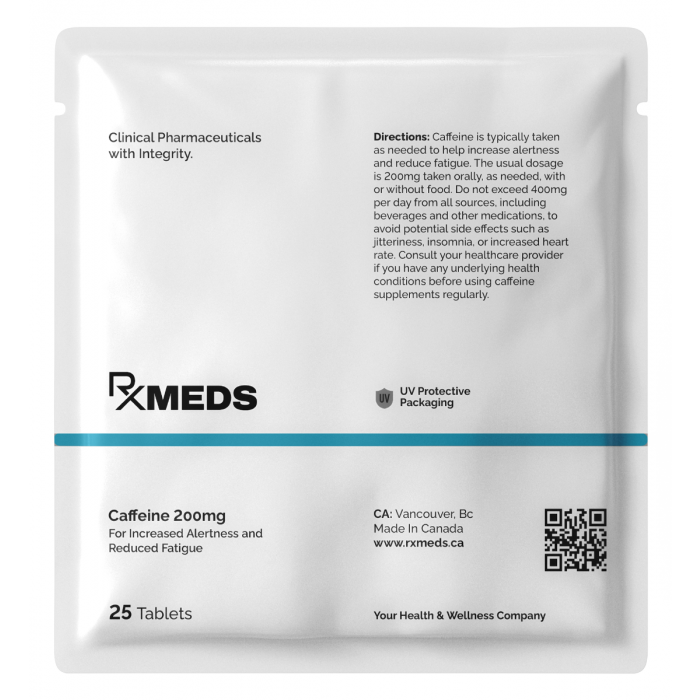Read More
What is Caffeine?
Caffeine is a natural stimulant found in coffee, tea, chocolate, and various beverages and medications. It works by blocking the effects of adenosine, a brain chemical that promotes sleepiness, and increasing the release of neurotransmitters like dopamine and norepinephrine to boost alertness, energy, and focus.
Caffeine is widely consumed for its ability to enhance physical and mental performance. It is also included in over-the-counter medications for headaches, migraines, and cold symptoms.
Generic name: caffeine
Other names: methylxanthine, guaranine (in guarana), theine (in tea)
Drug classes: Central nervous system stimulants, methylxanthines
Warnings
Excessive caffeine consumption may lead to symptoms like jitteriness, insomnia, increased heart rate, and gastrointestinal discomfort.
Avoid combining caffeine with other stimulants or large amounts of alcohol, as this can increase the risk of adverse effects.
Pregnant or breastfeeding individuals should limit caffeine intake to 200 mg per day, as high amounts may affect the baby.
Caffeine can interact with medications, including certain antibiotics, antidepressants, and antipsychotics. Inform your healthcare provider about your caffeine consumption.
Before Using This Product
Do not use caffeine in high doses if:
You are hypersensitive to caffeine or related compounds.
You have cardiovascular conditions like arrhythmias or high blood pressure.
You have a history of anxiety disorders or sleep disturbances.
You are pregnant or breastfeeding (consult your doctor for safe limits).
To ensure caffeine is safe for you, disclose any history of:
Heart conditions
Anxiety or panic disorders
Gastrointestinal issues like ulcers or acid reflux
Caffeine sensitivity or dependency
How Should I Use Caffeine?
Caffeine is available in multiple forms, including beverages, tablets, and energy drinks. The recommended daily limit for most adults is up to 400 mg.
Beverages: Coffee typically contains 80-100 mg of caffeine per 8 oz cup. Tea and soda have lower amounts.
Tablets or Capsules: Common dosages range from 100 to 200 mg per tablet.
Energy Drinks: Caffeine content varies but often ranges from 50 to 300 mg per serving.
Use caffeine as directed and avoid exceeding the recommended limits.
What Happens If I Miss a Dose?
Caffeine is typically consumed as needed. Missing a dose in a medicinal context may lead to withdrawal symptoms like headaches or fatigue.
What Happens If I Overdose?
Symptoms of caffeine overdose include restlessness, rapid heartbeat, nausea, vomiting, and, in severe cases, seizures or fainting. Seek immediate medical attention if overdose symptoms occur.
What to Avoid
Avoid consuming caffeine close to bedtime, as it can interfere with sleep.
Avoid combining caffeine with other stimulants or medications that increase heart rate.
Limit consumption of high-caffeine energy drinks, especially in conjunction with alcohol.
Caffeine Side Effects
Common side effects may include:
Jitteriness or nervousness
Insomnia or restlessness
Upset stomach
Increased heart rate
Severe side effects, such as heart palpitations or chest pain, require immediate medical attention.
 |
|
